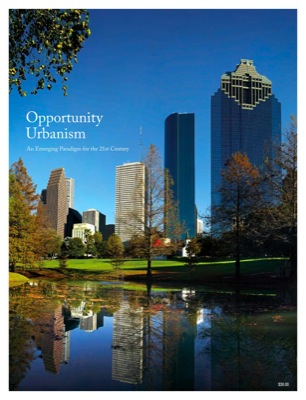On the day I flew to Houston a couple of weeks ago, I received an email from an old friend, an Oregon elected official who supports the state’s land-use planning program. Responding to my invitation to attend the Preserving the American Dream conference, he said he had been to Houston once before and it was “a living hell.” Then he added (ungraciously, I thought), if I liked it so well, why didn’t I move there?
I suspect that our attitude when we visit a place for the first time has a great deal to do with how we view that place afterwards. I admit that I, raised to believe that no landscape east of the Rockies could be worth visiting, took a long time to warm up to places such as New York and New Jersey (which, as it turns out, both have much beautiful scenery). Plus, I’ve noticed that the first objection many planning advocates have against Houston is its climate: “it’s hot and humid.” Yet I doubt any of them really believe that planners can do anything about local climates.

Kunstler might call this nowheresville, but the photographer called it “suburban bliss.”
Flickr photo by The Other Dan.
In any case, I came to Houston prepared to like it, and I did. This doesn’t prove anything; I may have looked at the city and region through rose-colored glasses. (Actually, I wore my amber ones.) I’ll be the first to admit that Houston isn’t perfect, and due to my ingrained prejudice against flat, I will probably never live there.
Continue reading →









